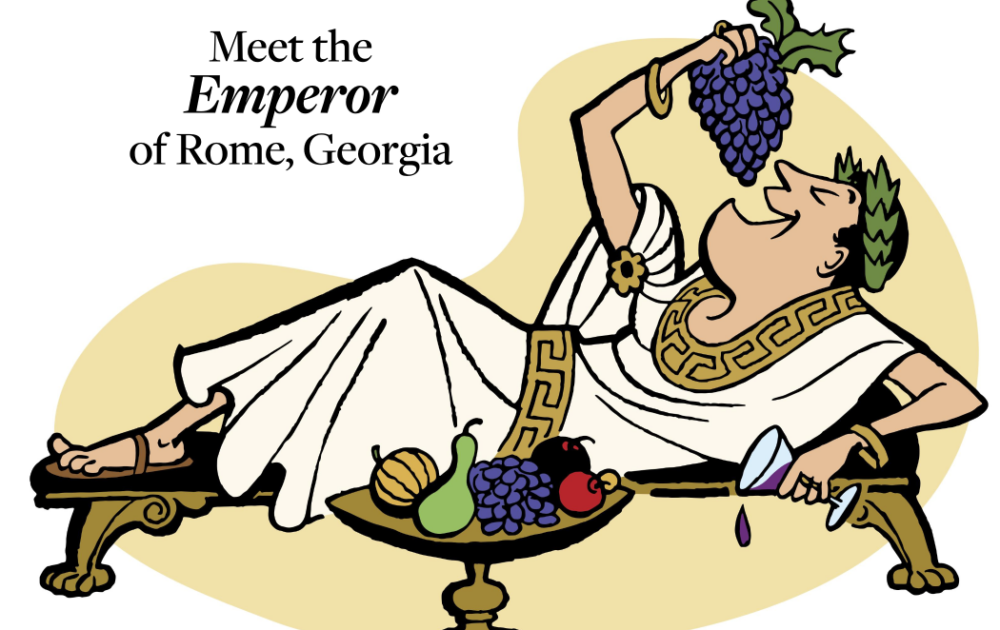
BILLY PAYNE IS fortunate. Usually you have to die before your legacy is splashed all over the news. All Billy Payne did is retire as chairman of Augusta National, the exclusive golf club that’s best known as the home of the Masters golf tournament each spring. Payne brought the well-endowed and hidebound club into the 21st Century by opening its doors to women members. I can’t help but point out that the gates to Augusta National are only a par two from a Hooter’s restaurant – which has always had an open policy toward women, but that’s a different story.
Nonetheless, Payne’s bigger legacy is bringing the 1996 Centennial Summer Olympic Games to Atlanta. People thought it was a foolish quest. I was among the skeptics. It wasn’t just the Olym- pics, it was the Centennial Olympics, for crying out loud. Surely no American city, much less Atlanta, stood a chance. But Payne pulled it off, and in so doing changed the face and economy of Downtown Atlanta.
Quite the legacy. Oh – he also is a successful businessman and has 11 grandchildren.
What started me thinking about legacies is that when I receive news of family members, or former classmates and colleagues who have died, it’s interesting to see what people remember informally – other than the usual “good friend,” “loving husband and father,” etc.
A former colleague named John died earlier this year. In an internet chat room, other col- leagues described him as talented, easy-going, etc. I noted his sense of humor. But one person remembered that when John walked into the office every morning, he slammed a six-pack of Cokes and two packs of Marlboros onto his desk, all of which he had consumed by quitting time. Hmmm
…suppose there was a lifestyle connection?
I had what I’ll call a “baseball buddy” named Gil. He died a few years ago, found dead in his recliner with the TV remote in his hand and a can of beer beside him. I only knew Gil in his last 15 or so years but, by all accounts he once was a talented writer with nary an ambitious bone in his body; choosing instead a career of night clerking at a series of motels. (We all wondered if he was secretly working on a novel.)
Somehow, The Indianapolis Star (Gil’s home- town paper) tracked me down in Rome. They were doing a story (even though Gil had lived for many years in Florida; I think the editor and Gil were college classmates). I offered what little I could for a story. But the editor mailed me a copy of that particular edition. It was a beautiful tribute to what many would call a wasted life. The editor also knew Gil’s college sweetheart, and she offered a passionate, detailed memory of a man she once loved, though I’m sure she had moved on.
My cousin Jerry was an overweight diabetic. I eerily recall a part of the pastor’s eulogy: remem- bering Jerry in his recliner (Memo to self: Cancel the order for the recliner), the TV remote in his hand, a glass of sweet tea beside him (overweight diabetic, remember?)
Going further afield, there’s the legacy of our 21st president, Chester A. Arthur, who’s the reason you have no excuse for being late. It was Arthur who wanted standardized time, which led to the International Meridian Conference in 1884, which established the Greenwich Meridian and international standardized time, still in use today. President Arthur also never gave an inaugural address, but maybe that’s because nobody knew what time it was.
I ponder my own legacy. I don’t actually want to leave a legacy, because I think it’s sort of like a resume, and I intend to find writing gigs in the afterlife so I want to take my legacy with me. But I can’t stop the eulogies after I’m gone. I suppose (hope?) some will say I was a smart-aleck. Some will say I got what was coming to me. People will note I loved animals (except squirrels). I generally respected our cherished institutions, even if I sometimes questioned them.
I never adapted to the idea of reading a book in any way other than holding it in your hands.
I raised two wonderful children. I met Henry Aaron, but I emulated Groucho Marx. I sat in Billy Carter’s gas station in Plains, Ga., to shoot the breeze. I never traveled to all the places I wanted, but I traveled more than my parents ever dreamed of.
And I loved women to a fault.
Biz Bits
Houston is drying out from Hurricane Harvey,
and gas pipelines are flowing, but don’t expect to see lower prices at the pump. The effects of Hur- ricane Irma will be felt for weeks. The proverbial one-two punch. Prices are now the highest they’ve been in Georgia in two years,
The plan to replace Andrew Jackson with Harri- ett Tubman on the $20 bill may die under Donald Trump. It seems Trump is an admirer of Jackson, which ties together in a way. It was Jackson who ordered the removal of native tribes from these parts to the westward desert wastelands, now memorialized as The Trail of Tears. Now Trump is intent on deporting productive, tax-paying folks in essential segments of the labor market because they were brought here “illegally” by parents who believed in the American Dream.
I guess it’s a good time to be a white guy in
America. So why don’t I feel better?
*The views expressed in this column are those of the writer, and do not represent the opinions of V3 Magazine.



